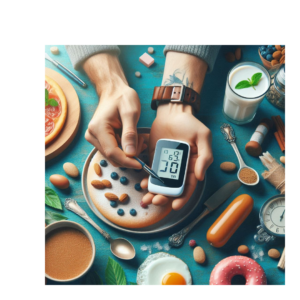Can Your Phone Help Detect Dementia? Exploring RAVCARE’s Potential
Dementia, a debilitating group of conditions affecting memory, thinking, and behavior, is a growing concern worldwide. Early detection is crucial for timely intervention and improved quality of life. Traditional methods often rely on cognitive assessments in clinical settings, which can be time-consuming and stressful. However, innovative solutions like the RAVCARE digital therapeutics app are emerging, offering the potential for detecting dementia through smartphones.
RAVCARE: A Digital Approach to Health
RAVCARE positions itself as a company focused on revolutionizing cardiometabolic well-being through personalized digital therapeutics. Their app leverages a patient-centered approach, aiming to empower individuals to manage chronic conditions through sustainable lifestyle changes. While their primary focus might be cardiometabolic health, the potential applications of their technology extend to neurological conditions like dementia.
Dementia Detection with Smartphone Technology
The concept of using smartphones for dementia detection is based on the idea that cognitive decline can manifest in subtle changes in how we interact with our devices. Here’s how RAVCARE’s app, or similar applications, could potentially contribute to early detection:
- Passive Data Collection: The app might passively collect data on smartphone usage patterns, such as typing speed, app usage duration, and screen interaction patterns. Deviations from baseline behavior could indicate potential cognitive decline.
- Gamified Cognitive Assessments: The app could incorporate gamified cognitive assessments that are engaging and less intimidating than traditional clinical tests. These assessments might evaluate memory, attention, and executive function through interactive games or tasks.
- Speech and Language Analysis: Speech recognition technology within the app could analyze speech patterns for changes in fluency, vocabulary, and sentence structure, which can be early signs of dementia.
Benefits and Considerations
The potential benefits of using smartphone technology for dementia detection are significant:
- Early Detection: Early identification of cognitive decline can lead to earlier intervention, improved treatment outcomes, and better quality of life for patients and their families.
- Convenience and Accessibility: Smartphone-based assessments offer a convenient and accessible way to screen for dementia, potentially reaching individuals who might not readily access traditional clinical settings.
- Non-Invasive and Continuous Monitoring: These methods are non-invasive and can provide continuous monitoring, allowing for a more comprehensive picture of cognitive function over time.
However, there are also important considerations:
- Accuracy and Validation: The accuracy and effectiveness of such apps for dementia detection require rigorous scientific validation through clinical trials.
- Data Privacy and Security: Protecting sensitive user data collected through smartphones necessitates robust security measures and user education on data privacy practices.
- Digital Divide and Equity: Accessibility for individuals with limited technological literacy or smartphone access is crucial to avoid widening healthcare disparities.
The Road Ahead: Collaboration and Research
While the potential of smartphone-based dementia detection is promising, further research and development are needed. Collaboration between technology developers, healthcare providers, and researchers is key to ensure:
- Development of reliable and validated algorithms for analyzing smartphone data and identifying cognitive decline.
- Integration with existing healthcare systems to facilitate seamless data sharing and clinical decision-making.
- User-friendly interfaces that cater to diverse user needs and technological comfort levels.
RAVCARE and the Future of Dementia Detection
Whether RAVCARE’s app specifically is the answer remains to be seen. However, their work highlights the exciting potential of digital therapeutics and smartphone technology in the fight against dementia. As research progresses and collaborations strengthen, we can move closer to a future where detecting dementia is as easy as using your phone.
Disclaimer: It is important to note that RAVCARE’s current focus might not be on dementia detection specifically. This post explores the theoretical possibility of their app, or similar applications, being adapted for this purpose. Consulting with a healthcare professional is always recommended for dementia diagnosis and management.

A Safe and Effective Way to Reverse Insulin Resistance and Improve Overall Health
A Safe and Effective Way to Reverse Insulin Resistance and Improve Overall Health

A Time to Reflect on Our Health – Tips for Improving Your Health during National Diabetes Month
National Diabetes Month is an excellent opportunity to take control of your health and make lifestyle changes to prevent or manage diabetes.

Carnivore Diet for Prediabetes Reversal
The carnivore diet presents a unique approach to dietary management and may offer potential benefits for individuals seeking to reverse prediabetes.
